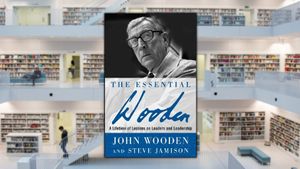
Summary:
This Book is For:
- Individuals who believe that there has to be more to life than drudgery, boredom, and conflict.
- People who feel as though their highest potential still lies undeveloped within themselves.
- Human beings who have never felt comfortable within the mold that society has tried to fit them into.
- People who are ready to wake up.
George Ivanovich Gurdjieff was one of the most charismatic, enigmatic, powerfully self-possessed mystical teachers of the 20th century, and this book is a short introduction to his life and work. Gurdjieff taught that most humans exist in a state of "waking sleep," where they remain unaware of their infinite potential and ultimate value as human beings.
His "System" (which he never claimed was the system, but simply a system, albeit a very effective one) was also known as "The Work," tending to mean "work on oneself." The Work was Gurdjieff's method of achieving higher consciousness and "keeping the mind awake." As such, his life and work can be thought of as the "war against sleep," i.e. sleepwalking through life and remaining unfulfilled, apathetic, and miserable.
The present book was written by Colin Wilson, one of the most important philosophers of the late-20th century, and he tells the fascinating story of Gurdjieff's arrival from seemingly nowhere to found an influential school of personal development and to show human beings all over the world that they were habitually living as inferior to their full selves.
If this all sounds rather abstract, as Gurdjieff's philosophy plays out in real life it is extremely practical, and the opportunities to "wake up" are always available to everyone at all times. You don't need to pay anything to anyone, or believe anything specific, or blindly follow some leader - fully human wakefulness is your "birthright" as a human being, and Gurdjieff's method is simply one way of claiming that right.
Colin Wilson believed that most human beings are like great big and powerful jet airplanes attempting to fly on just one engine. That is, we possess vast lakes of "vital reserves," or extra energies that we habitually fail to call upon. So if you feel as though there is something missing in your life, that the world is more gray and bleak than it could be or should be, then you're beginning to wake up.
Another hugely influential philosopher, Jiddu Krishnamurti, felt the same way. He was another teacher who never wanted his students to become dependent on him for their further development. Rather, Gurdjieff and Krishnamurti were life rafts that we discard once we reach the other side of the river. The latter taught that when we get caught up in the everydayness of life, getting and spending and striving and competing, we lose sight of the immeasurable beauty and majesty - and just, wondrousness - of life itself.
For Gurdjieff's part, he saw this tendency as a kind of "mass psychosis" that could lead an entire continent into the horrific destructiveness of World War I and threaten to bring down the entire human race. Later on, Krishnamurti would make the shocking claim that most parents didn't really love their children if they simply allowed them to be sacrificed in wars. Parents may be ambitious for their children, might value their children economically and egoistically, but real, unconditional love was absent.
This was exactly the kind of shocking claims that Gurdjieff was known to make, but their main function was to get the listener to pay rapt attention. Waking up isn't easy, and it's not a one-time deal. Sleepwalking is a habit, and keeping the mind awake has to be actively maintained, again and again and again.
Gurdjieff said that, “The highest aim and sense of human life is the striving to attain the welfare of one’s neighbour," and so there is something radically wrong with the way that most people are living. "Man is in prison," but to know this consciously - as a felt reality - takes active, sustained effort over a longer period of time.
So this whole book is about getting that process started. It's about the effort to attain self-knowledge, and the super-effort that full aliveness may require. It's about abandoning destructive habits and automaticity, and about keeping the mind awake. It's about firing up all the engines.
This philosophy is about kicking everything about your life into high gear, but nobody is claiming that it's going to be easy. To realize how powerful we are, and how alive we can be, however, is to effect a revolutionary alteration in human consciousness. It really is like waking up.
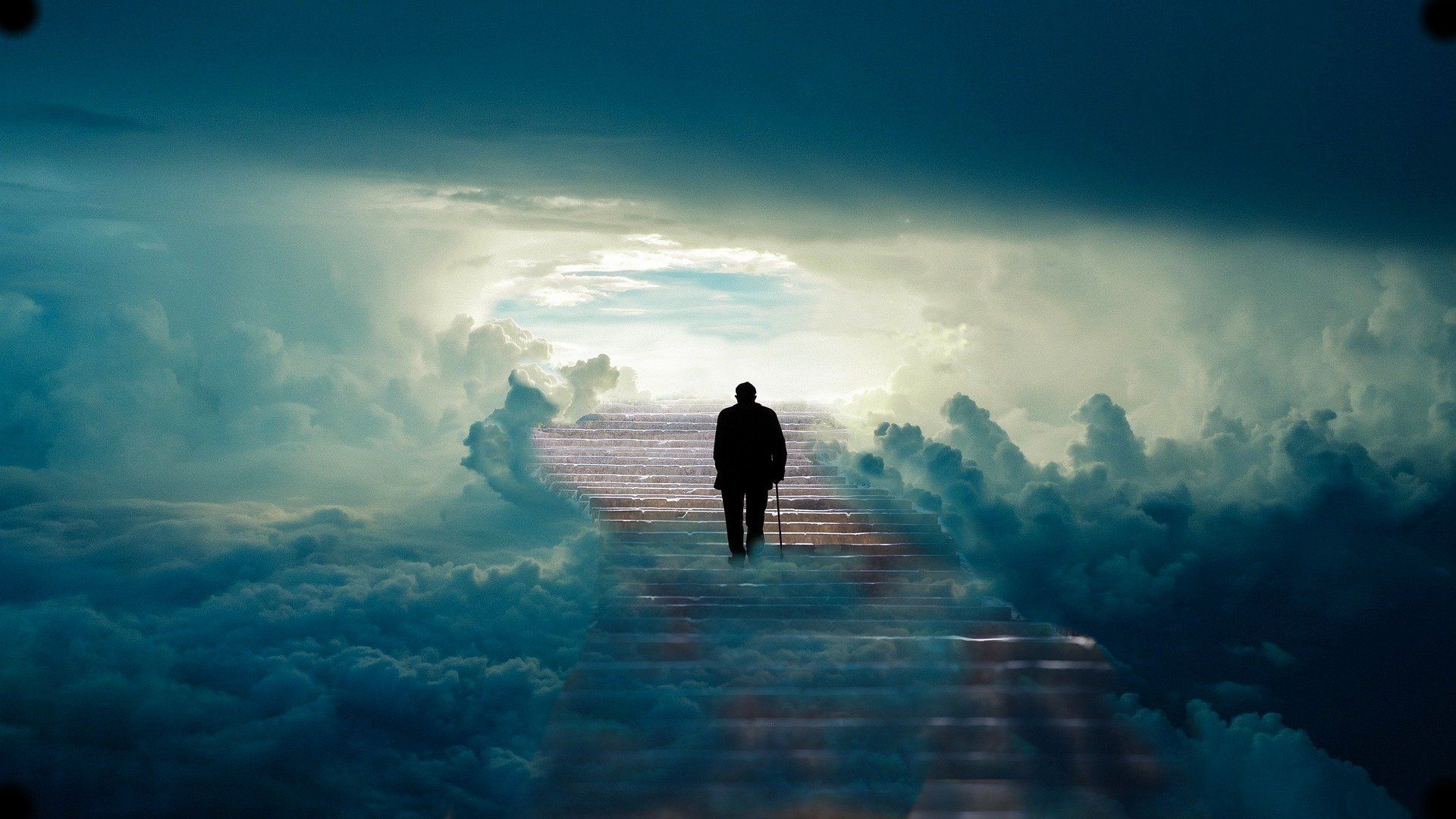
Key Ideas:
#1: “At the core of his work lies this notion that we possess greater powers than we realize, and that our apparent limitations are due to a peculiar form of laziness – a laziness that has become so habitual that it has developed into a mechanism.”
Colin Wilson hypothesizes that most human beings are similar to a massive jet airplane attempting to fly on just one engine. That is, we possess power and strength that remain invisible to us, and which we never even attempt to use. Gurdjieff felt much the same way, and that's what Wilson is getting at here.
We have so much left inside us that we fail to call upon, and this fact is well-known to endurance athletes the world over. Once you hit "the wall," says David Goggins, you've really only reached 40% of your total capacity. You may feel as though you can't go on, and that you've run up against the limit of your powers, but you still have about 60% left. That's what Goggins says, anyway, and Gurdjieff would back him up on this.
Where Gurdjieff primarily applied this level of understanding, however, was in the context of an awareness of the value of life - the infinite value of all life. This infinite value lies hidden in plain sight by most people as they go about their lives, obsessed with the problems of getting and spending, and trying to catch up on their latest Netflix shows.
I have a Netflix membership myself, and I use it, so I'm not denigrating television or entertainment in general or anything. It's just that when it causes our awareness to glaze over and makes us lose sight of the limitless wonder available in the everydayness of our lives, that's when it becomes pathological.
Habits work both ways, both for us and against us. Building habits is excellent for managing complexity and consistently improving our lives, but habits, by definition, dull our awareness. They make it easy to go through life on autopilot.
What's worse, the chains of habit are too light to be felt, until they are too strong to be broken. We don't feel ourselves becoming slaves to our habitual ways of living. We amble along in our daze and our apathy until that becomes normal for us and we go to sleep, even though we may physically have our eyes open and make our way through the week. What Gurdjieff was doing is shaking people by the shoulders and forcing them to drop the habits of dullness, apathy, and misery.
#2: “Man is in prison, said Gurdjieff. If he is to have a chance to escape, then he must begin by realizing that he is in prison. Until he has reached this point, he cannot even begin. Then arises the question: how to escape?
Here, Gurdjieff made a statement that is also central to his work. A group of people stands a better chance of escape than a single person, for they can collaborate on a tunnel. A man on his own stands little chance. For man is basically asleep. He thinks that his everyday consciousness is ‘waking consciousness,’ as opposed to the unconscious state he plunges into every night. This is perhaps his greatest mistake.
In fact, when we wake up in the morning, we simply enter another form of sleeping consciousness. We merely react to circumstances, doing today what we did yesterday and the day before.
Various things can give us flashes of ‘awakening’ – a sudden crisis, the prospect of a need to change one’s whole mode of existence, even setting out on a journey or a holiday. A mother holding her new baby for the first time may ‘wake up’ for a moment, and realize, in a flash, that the consciousness she accepts every day of her life is not necessary, that life could be completely different, far more fascinating and complex. In short, that she is free. But if, ten minutes later, she asks herself: ‘What is this freedom?’, she has already forgotten.”
#3: “To actually know this consciously, to realize that we were not intended to reach breaking point so quickly and easily, would obviously alter a man’s whole approach to his life and its problems. To effect such an alteration in human consciousness was Gurdjieff’s central aim.”
What we have done once, we can do again. Even more powerfully: what we remember being able to do, we are more likely to be able to do again. To return to David Goggins once more, if we have - at least once - pushed past our perceived limits at 40% and proceeded to give everything we have within us, we now have a reference experience stored for later. Then, when a similar situation arises, we have the muscle memory to be able to say, "I've been here before. I can do this. I have more. I can give more, become more."
These flashes of illumination concerning our true potential help us to see that we are bigger than our problems and our challenges. We have always been bigger and more capable than we have led ourselves to believe; we are so strong, so awake, but we had no idea. We didn't know how strong we were. Once we have the reference experience of strength, however, we can call upon this strength again and again in the future. We can refer back to that time when we showed ourselves what we could do.
Taken to its logical conclusion, this would change everything, wouldn't it? Every decision, every problem, every action, every thought would be influenced by this internal knowledge that we possessed lakes of "vital reserves" that we could call upon at any moment to help us meet any challenge.
It would be a new level of experience where nothing was insurmountable and life itself possessed infinite value. Gurdjieff's aim was to make this awareness conscious more often than it was unconscious. He said that most people were asleep most of the time, but through effort, sacrifice, and intense dedication, people were capable of "waking up."
#4: "How is this to be done? According to Gurdjieff, the answer falls into two parts. First of all, a man must commit himself wholly and totally to the task of escaping his normal limitations; it requires the kind of commitment that made saints sit on top of pillars. Secondly, he must understand something of the workings of this complicated computer that houses the human spirit.”
Extraordinary results require extraordinary commitment. If sleep is the ordinary condition of humankind, then being fully awake and alive is an extraordinary state of affairs - it requires sacrifice. A willingness to sacrifice is the first step.
Joseph Campbell, in The Hero with a Thousand Faces, points out that sacrifices are extremely common in the folklore of peoples scattered all over the earth. A sacrifice is, by definition, when you give up something of value in order to attain something of even greater value. In the present case, you are sacrificing your comfort and your old identity for an advance in consciousness.
Second, you have to understand a little bit about the functioning of the human "computer," or as Gurdjieff would have said, the human machine. You have to find out how it works so that you can make adjustments and improvements. This is another way of talking about self-understanding.
When we pursue self-understanding, we come to realize that we are capable of a stronger response than we usually ask from ourselves. Bodybuilders like Tom Platz have figured this out when they say that, when you feel like you're totally done, there's always at least five more reps inside you. Furthermore, inside every human being there are also new and finer emotional responses, new intellectual pathways of discovery, and facets of the human experience as yet undiscovered. As Wilson says in the book:
“Like all computers, they are capable of a far wider range of response than we ever demand of them. But wider responses can only be obtained when they are thoroughly understood.”
#5: “Gurdjieff explained that he was introducing them to the principle of super-effort. If a man walks twenty-five miles in bad weather, and gets home cold and hungry – and then decides to walk another two miles before going indoors, that is super-effort.
Here, I feel, Gurdjieff was failing to explain something important. It is not the super-effort itself that is important, but the energy we summon to meet it. The whole point of Gurdjieff’s ‘system’ – and this is never sufficiently emphasized either in his own books or in those about him – is its basic assumption that man possesses far more energy than he realizes – a vast lake of ‘vital reserves.’
What cuts us off from these reserves is a feeling of laziness, or rather, of reluctance. We contemplate some effort, and think: ‘What a bore.’ And this feeling of boredom instantly lowers our vitality. If I performed a super-effort – like walking the additional two miles – with a groan of self-pity, it would be completely useless.
Yet if some sudden crisis – or some sudden piece of good news (i.e. someone I love is waiting for me two miles away) – made me decide to walk the two miles, I would do it with a springy step, prepared, if necessary, to go ten times as far. This, then, is the real aim of the exercise: to summon that state of optimism, of inner purpose, that makes the super-effort easy.”
#6: “This was the basis of Gurdjieff’s method. But it was not simply a matter of developing strength and alertness. Hard work can become a mere habit, like any other. Gurdjieff’s aim was also to persuade his pupils not to develop habits. Habits arise from doing something mechanically, with the mind ‘elsewhere.’ Gurdjieff’s pupils were made to work hard; but it was important that they should maintain ‘mindfulness,’ intense awareness.”
Clearly, the principle of super-effort is about giving more, demanding more. But hard work itself is not the ultimate aim, as could be illustrated by Boxer, the horse from Animal Farm who worked himself to death at the behest of authority figures whose motives he didn't even understand.
Habits, as discussed above, have their place. It saves mental bandwidth not to have to decide to perform healthy habits over and over again. We make the decision once to install the habit of exercise, and then, week after week, month after month, we work ourselves into better and better shape. If the habit of going to the gym is automatic, we no longer have to decide - we just go.
But Gurdjieff generally came down against habits. Habits are "business as usual." One isn't really paying attention to your life - calling forth their highest potentialities - because they're just habitually sleepwalking through life. When it comes to "keeping the mind awake," habits are death.
#7: “Generally speaking, the greater a person’s potentiality for achievement, the greater his or her objection to that feeling of being ‘cut off from one’s rightful resources.’”
This is also one of Colin Wilson's main arguments in his book, The Outsider. That book is a study of individuals who simply could not live according to the dictates of the rest of society; being stuffed into the regular societal mold gave them the feeling of being "cut off from one's rightful resources," and they resisted that with the full force of their personal energies.
This is a common theme in great literature, from Henry David Thoreau saying, in Walden, that the "mass of men lead lives of quiet desperation," and it was a constant refrain of Freidrich Nietzsche as well. Great women throughout history felt this too, especially brilliant and powerful women like Hypatia of Alexandria and Aspasia of Miletus. You could even say that feminism is a visceral rejection of the feeling of being forced to live as though asleep or invisible.
Those great personages would never accept sleep over wakefulness, passivity over activity, death over life. The greater their alienation - the heavier their chains - the greater their mental pain. So if you, personally, feel great mental anguish at being underutilized, undervalued, or less than you're capable of being, then that's a fantastic sign! Hating being chained to a desk is a precondition of freedom.
#8: “And therein lies the problem. For exhaustion makes things ten times as bad. When we are healthy and wide awake we are always experiencing the sudden flash of sheer ‘absurd delight’ that reawakens our sense of meaning and purpose. But exhaustion makes everything seem dead, so that no effort seems worth making. The world becomes ‘stale, flat and unprofitable.’ And if we are taken in by this apparent meaninglessness, this is a highly dangerous state. It becomes a vicious circle of depression and fatigue.”
To be taken in by appearances - to forget that this life is paradise - is to fall victim to a very dangerous error. Wilson references G.K. Chesterton's amazing allegory, The Man Who Was Thursday, when he says "absurd delight." It refers to the main character's revelation that the "horrible face" of the world is really the "back" of the world, and really to see clearly is to "get around in front":
“Shall I tell you the secret of the whole world? It is that we have only known the back of the world. We see everything from behind, and it looks brutal. That is not a tree, but the back of a tree. That is not a cloud, but the back of a cloud. Cannot you see that everything is stooping and hiding a face? If we could only get round in front…”
The healthy individual has the potential to experience the wonder of existence as a felt reality, whereas the person who is always exhausted and beleaguered and pessimistic misses the paradise for the pain. They're always running into the "ugly mask" of the world, witnessing its brutality and horror, and shying away from the light and the beauty.
When I say the "healthy individual," I mean health in the physical sense, as in vitality and energy, but also in the psychological sense of possessing a mind that's fully awake. It's said that the healthy person wants 10,000 things, whereas the sick person wants only one: their health. When you're bombarded by negative news reports, disgusting politicians, ugly scandals, and intrigues, you're succumbing to sickness.
One could spend their whole life in this state of apathy and despair, but as we will discuss next, this pessimistic attitude is not the truth of our human situation. We just have to get around in front!
#9: “The ‘moments of vision’ were telling the truth all along. The moment we really grasp this -rationally and logically, as we grasp that the earth is round – we shall begin to see the vision of infinite possibility that Greene experienced as he played Russian roulette; but as a steadily-held insight, not a sudden glimpse.”
Long-time readers of Colin Wilson will notice that he recycles the same stories sometimes to prove his point. This time, he calls back to mind the story of the novelist Graham Greene, and how he used to play Russian roulette by himself in a field as a young man.
The story is that Greene was afflicted with a terrible, oppressive sense of boredom and futility in his daily life, and so would attempt to relieve that boredom by loading a single bullet in the chamber of his revolver, heading out to the middle of a field, sitting down, and pulling the trigger.
When he heard the click and realized that the chamber was empty and that he was still alive, he was suddenly gripped by the feeling that everything on earth was absurdly beautiful and incredible; life was vital and real, and he had simply been blind to that fact due to his pervasive sense of boredom. It was like a light had been turned on.
But the truth is that the world was always that beautiful and that real, and he simply had to be shaken into awareness of that fact. The metaphor of the light being turned on is apt because turning on a light only illuminates things that already exist inside the room. It doesn't bring anything extra into existence - it only reveals the truth that has existed all along.
So, in exactly the same way, our boredom, malaise, apathy, pessimism - basically every negative emotion that makes us want to turn away from life - is not the truth. Life possesses infinite value if we are only awake to see it.
There's another, similar story about Dostoevsky, the Russian novelist who was arrested as a young man as part of a revolutionary group and sentenced to death by firing squad.
At literally the last moment, his death sentence was commuted and he was sent to a labor camp in Siberia instead. Crucially, he experienced the exact same kind of enlightenment that galvanized Graham Greene. Later on, in The Brothers Karamazov, he was able to write:
“Do not weep, life is paradise, and we are all in paradise, but we do not want to know it, and if we did want to know it, tomorrow there would be paradise the world over.”

Book Notes:
“Everyone is familiar with the phenomenon of feeling more or less alive on different days. Everyone knows on any given day that there are energies slumbering in him which the incitements of that day do not call forth, but which he might display if these were greater. Most of us feel as if a sort of cloud weighed upon us, keeping us below our highest notch of clearness in discernment, sureness in reasoning, or firmness in deciding.
Compared with what we ought to be, we are only half awake. Our fires are damped, our drafts are checked. We are making use of only a small part of our possible mental and physical resources. In some persons this sense of being cut off from their rightful resources is extreme, and we then get the formidable neurasthenic and psychasthenic conditions, with life grown into one tissue of impossibilities, that so many medical books describe.
Stating the thing broadly, the human individual thus lives far within his limits; he possesses powers of various sorts which he habitually fails to use. He energizes below his maximum, and he behaves below his optimum.
In elementary faculty, in coordination, in power of inhibition and control, in every conceivable way, his life is contracted like the field of vision of an hysteric subject – but with less excuse, for the poor hysteric is diseased, while in the rest of us, it is only an inveterate habit – the habit of inferiority to our full self – that is bad.”
-William James, pioneering American psychologist
“James cites the well-known phenomenon of ‘second wind’ as an example of this power to draw upon vital reserves. When we are completing some task, he says, we make a practice of stopping once we feel tired – once we encounter the first layer of fatigue. If we force ourselves to press on, a surprising thing happens. The fatigue gets worse, up to a point, then suddenly vanishes, and we feel better than before.
He mentions that one of the standard methods of treating ‘neurasthenic’ patients in the nineteenth century was to bully patients into making a greater effort than usual. ‘First comes the very extremity of distress, then follows unexpected relief.’ And he adds: ‘We live subject to arrest by degrees of fatigue which we have come only from habit to obey.’ In this sentence, James has defined the essence of Gurdjieff’s life-work.”
“At your age, I looked for hardship, danger, horror and death, that I might feel the life in me more intensely.”
-George Bernard Shaw
“Now I see why God hides Himself from us.”
“Instantly, I was overwhelmed with amazement, not only at my own state, but at everything that I looked at or thought of. Each tree was so uniquely itself that I felt that I could walk in the forest for ever and never cease from wonderment.
Then the thought of ‘fear’ came to me. At once I was shaking with terror. Unnamed horrors were menacing me on every side. I thought of ‘joy,’ and I felt that my heart would burst from rapture.
The word ‘love’ came to me, and I was pervaded with such fine shades of tenderness and compassion that I saw that I had not the remotest idea of the depth and the range of love. Love was everywhere and in everything. It was infinitely adaptable to every shade of need.
After a time, it became too much for me, it seemed that if I plunged any more deeply into the mystery of love, I would cease to exist.”
-J.G. Bennett
“This is certainly our most remarkable human characteristic: imagination.”
“If only we made the effort, we could achieve a degree of control over our feelings that would at present strike us as miraculous.”
“Back in Tiflis, he had enough money to give up his job on the railway and spend his days reading.”
“When Gurdjieff told Ouspensky that his Moscow pupils paid a thousand rubles a year, Ouspensky said it sounded a lot. At this, Gurdjieff explained that it was important for his pupils to pay for what they received. First of all, people do not value what they receive too easily; second, people who could not find that much money per year would probably be bad at ‘the work’; Gurdjieff emphasized that it is the competent, efficient people, not the neurotic dreamers, who can generate the power to change themselves.”
“Comfort and security could be far more dangerous than uncertainty – which has the advantage of keeping the mind alert.”
“People can comfortably absorb new ideas and go back to sleep. He had to devise new methods of keeping them awake.”
“This, of course, is precisely what Gurdjieff intended. He believed that, through intense efforts, a certain form of energy is created – the energy man needs for self-transformation. Without that energy, he can think about self-transformation, even long for it, but can never achieve it.”
“You think you know who you are and what you are; but you do not know either what slaves you now are, or how free you might become.”
“Meaning instantly creates energy.”
“The mental ‘muscle’ I use for this purpose is undeveloped. But all muscles can be developed.”
“The problem, then, is clear: to increase the driving force. Man may be more than half mechanical; but he can choose whether to live in a blank, hypnotized state, or whether to live as though some immense unguessed meaning lay on the other side of this curtain of everyday reality, waiting to reveal itself to a sense of purpose. Gurdjieff’s ‘System’ is probably the greatest single-handed attempt in the history of human thought to make us aware of the potential of human consciousness. Whether he realized it or not, his life-work had achieved its purpose.”
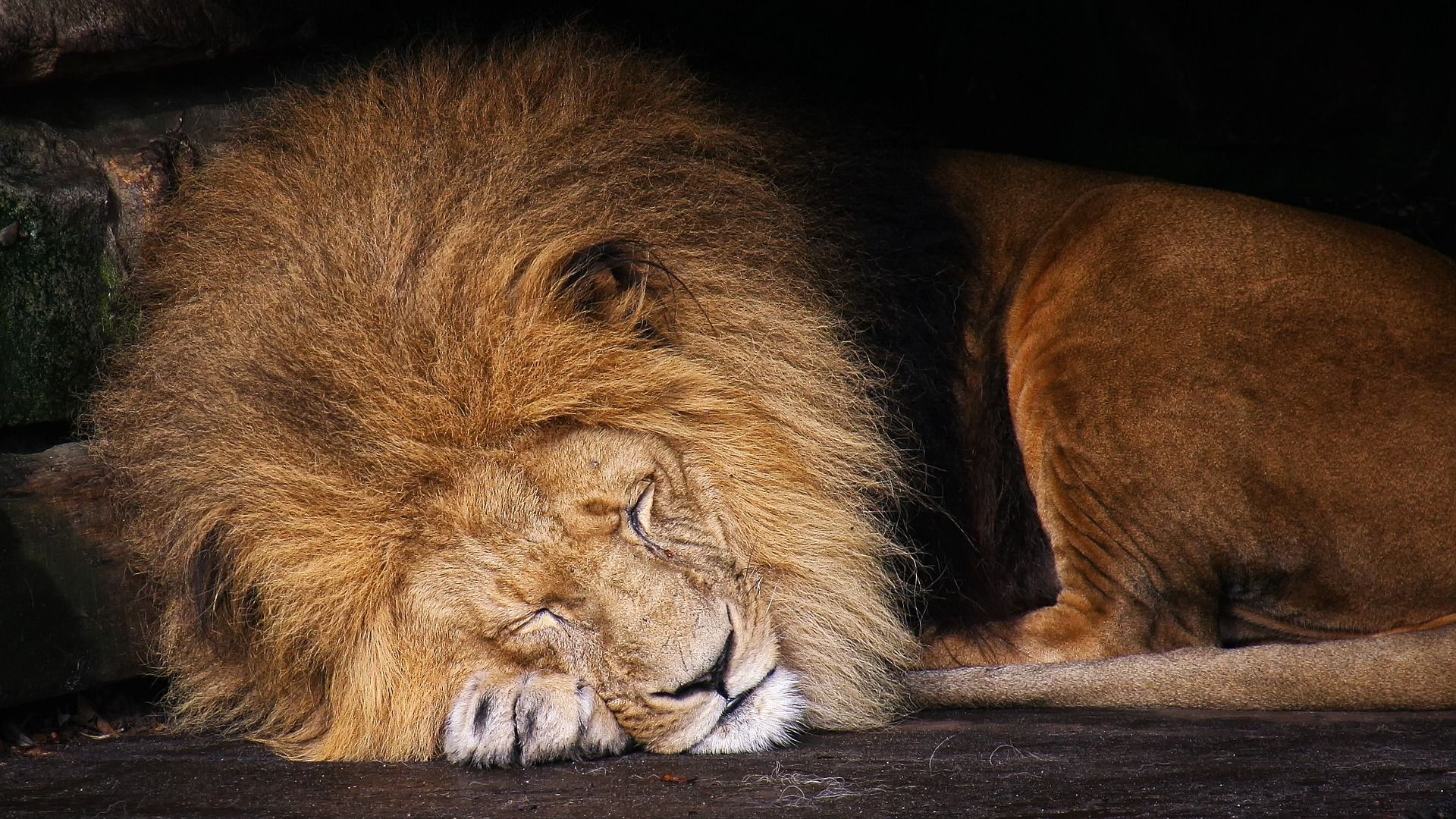
Important Insights from Related Books:

The Outsider, by Colin Wilson:
“Normally man’s mind is composed only of a consciousness of his immediate needs, which is to say that this consciousness at any moment can be defined as his awareness of his own power to satisfy those needs. He thinks in terms of what he intends to do in half an hour's time, a day's time, a month's time, and no more. He never asks himself: What are the limits of my powers? In a sense, he is like a man who has a fortune in the bank, who never asks himself, How much money have I got?, but only, Have I enough for a pound of cheese, for a new tie? etc."
“Man’s moments of freedom tend to come under crisis or challenge, and when things are going well, he tends to allow his grip on life to slacken.”
“What is Hell? I maintain it is the suffering of not being able to love - and for that, you do not need Eternity; a day will do, or even a moment."
-Fyodor Dostoyevsky
Read the Full Breakdown: The Outsider, by Colin Wilson
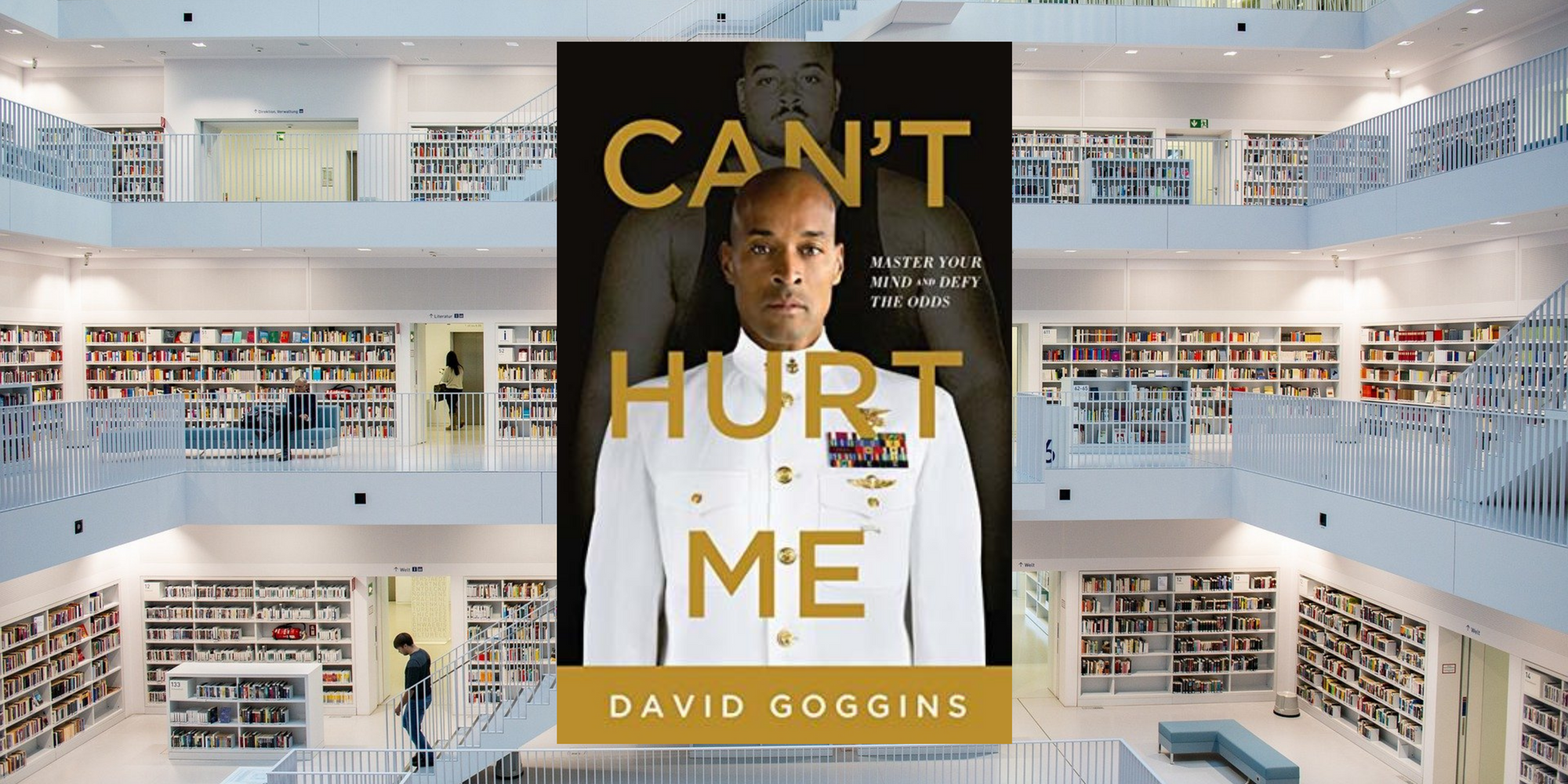
Can't Hurt Me, by David Goggins:
“You’re probably living at about 40% of your true capability. Damn shame.”
“The mirror is going to tell you the truth every time, so why are you still lying to yourself? So you can feel better for a few minutes and stay the fucking same?”
“We must create a system that constantly reminds us who the fuck we are when we are at our best, because life is not going to pick us up when we fall.”
Read the Full Breakdown: Can't Hurt Me, by David Goggins
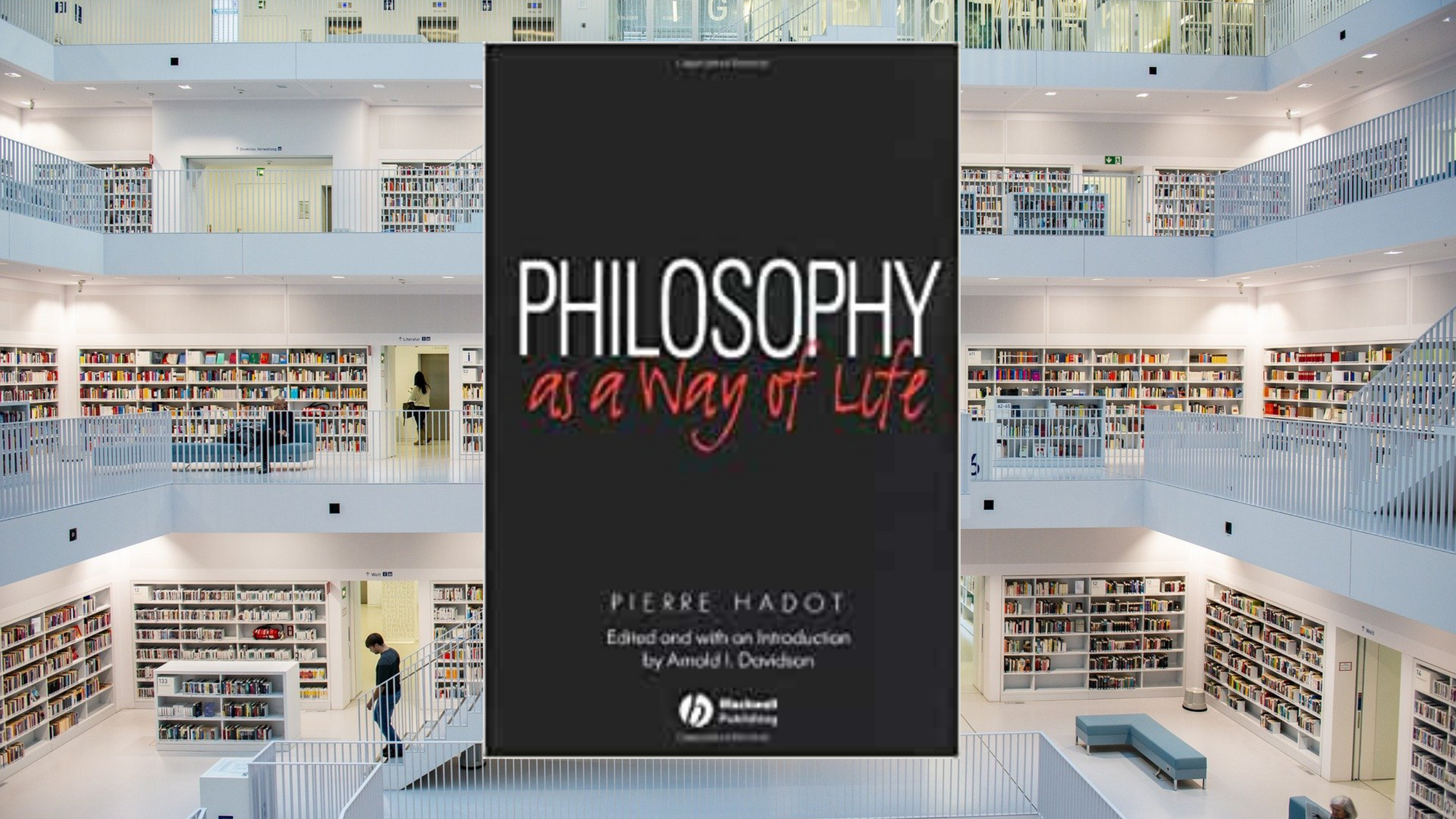
Philosophy as a Way of Life, by Pierre Hadot:
“Persuade yourself that every new day that dawns will be your last one. And then you will receive each unhoped-for hour with gratitude.”
“If the whole world were to appear to mortals now, for the first time; if it was suddenly and unexpectedly exposed to their view; what could one think of more marvelous than these things, and which mankind would less have dared to believe?"
“From the point of view of death, the mere fact of existing - even if only for a moment - seems to be of infinite value, and gives us pleasure of infinite intensity."
This Book on Amazon: Philosophy as a Way of Life, by Pierre Hadot
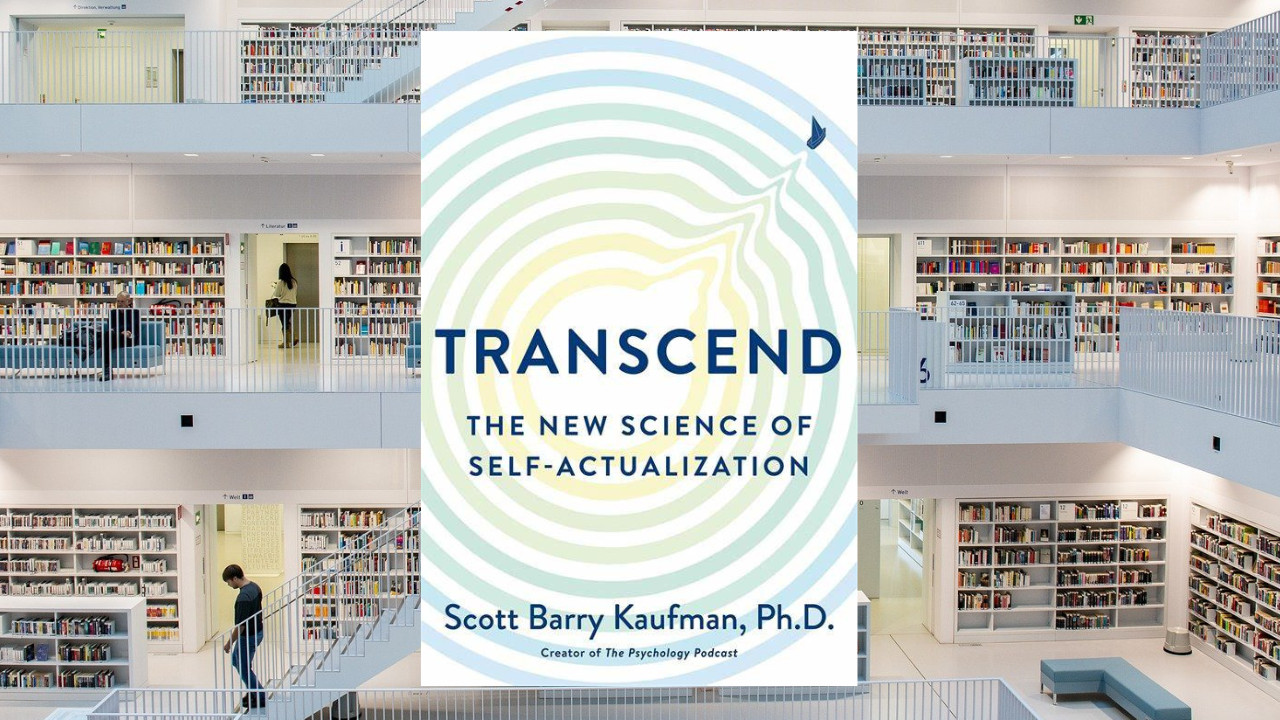
Transcend, by Scott Barry Kaufman:
“Within the humanistic psychology framework, the healthy personality is considered one that constantly moves toward freedom, responsibility, self-awareness, meaning, commitment, personal growth, maturity, integration, and change, rather than one that predominantly strives for status, achievement, or even happiness."
“I do not accept any absolute formulas for living. No preconceived code can see ahead to everything that can happen in a man's life. As we live, we grow and our beliefs change. They must change. So, I think we should live with this constant discovery. We should be open to this adventure in heightened awareness of living. We should stake our whole existence on our willingness to explore and experience."
-Martin Buber, 20th-century philosopher
“I think of the self-actualizing man not as an ordinary man with something added, but rather as the ordinary man with nothing taken away.”
-Abraham Maslow
Read the Full Breakdown: Transcend, by Scott Barry Kaufman
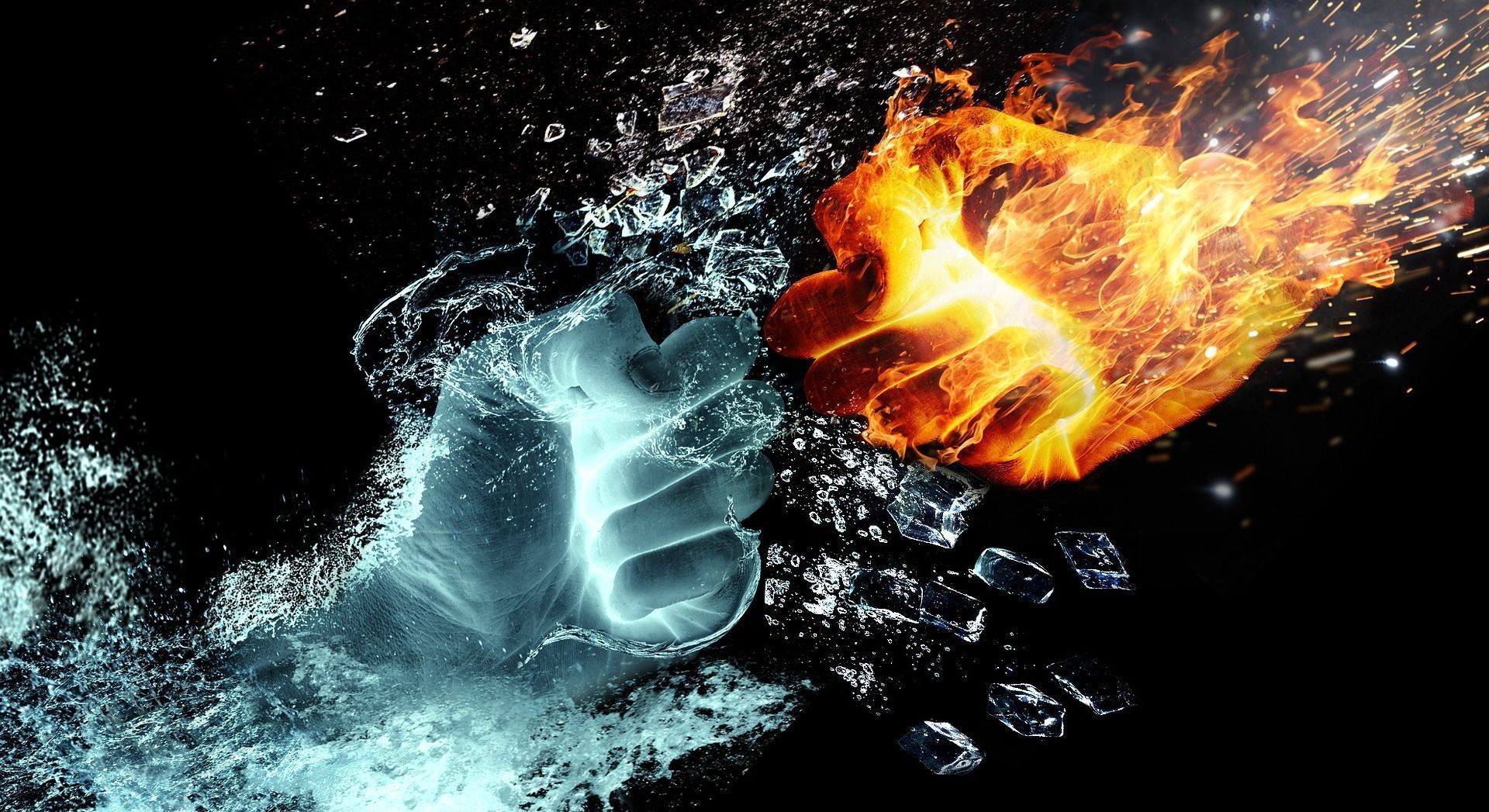
The View from the Opposition:
No one's ideas are beyond questioning. In this section, I argue the case for the opposition and raise some points that you might wish to evaluate for yourself while reading this book.
#1: Gurdjieff would never want you to follow him forever.
It's important to remember that although Gurdjieff charged money for his services - and often struggled to keep his school open - he would never have wanted you to remain a student forever. That's just not what his philosophy was about.
Some people want to remain perpetual students, always staying under the shadow of their "master" and never venturing out on their own to make their own way. It's important to resist this urge. We can all learn so much from Gurdjieff, but the entire point of The Work is to become fully ourselves.
#2: Gurdjieff's methods would lead to so many law suits today.
In the book, some of the stories about Gurdjieff's life and methods are wild! They simply wouldn't fly today, and he would be the bane of human resources directors the world over.
You've got stories about things like commanding a young boy to mow a huge lawn faster and faster until he was at the point of exhaustion; times when Gurdjieff would purposefully make a nuisance of himself to try and get his students thrown off their equilibrium; and many more that you just have to wonder at.
So maybe don't try to replicate all of what Gurdjieff used to do, but it was certainly effective! At least most of the time. I just have to mention it here because what he did was often pretty extreme, and it's not totally necessary to do it the same way. Some people can wake up with a more gentle alarm.
#3: I'm also leaving quite a bit out.
Gurdjieff developed a hugely complicated system that covered pretty much every aspect of human experience, and there a lot of moving parts. Some accord with the findings of modern science, and others are a bit more esoteric.
So you don't have to believe everything he said about "centers," and hydrogen and levels and all the rest of it. This book breakdown mostly skips over that stuff, but it's certainly interesting. A lot of it is stuff that modern scientists and psychologists would shake their head at, but in certain other respects, Gurdjieff was way ahead of his time.
#4: Don't look down on people who are asleep.
This is an important one. Spiritual narcissism is a thing, whereby we look down on people who maybe aren't as "evolved" as we are, or who haven't made the "spiritual progress" that the rest of us have made. Don't do that!
Everyone moves through life at their own pace, and as dumb as it sounds when I say it out loud, I truly believe that the only time you should look down on someone is when you're helping them up!
"The test of a first-rate intelligence is the ability to hold two opposed ideas in the mind at the same time and still retain the ability to function.”
-F. Scott Fitzgerald
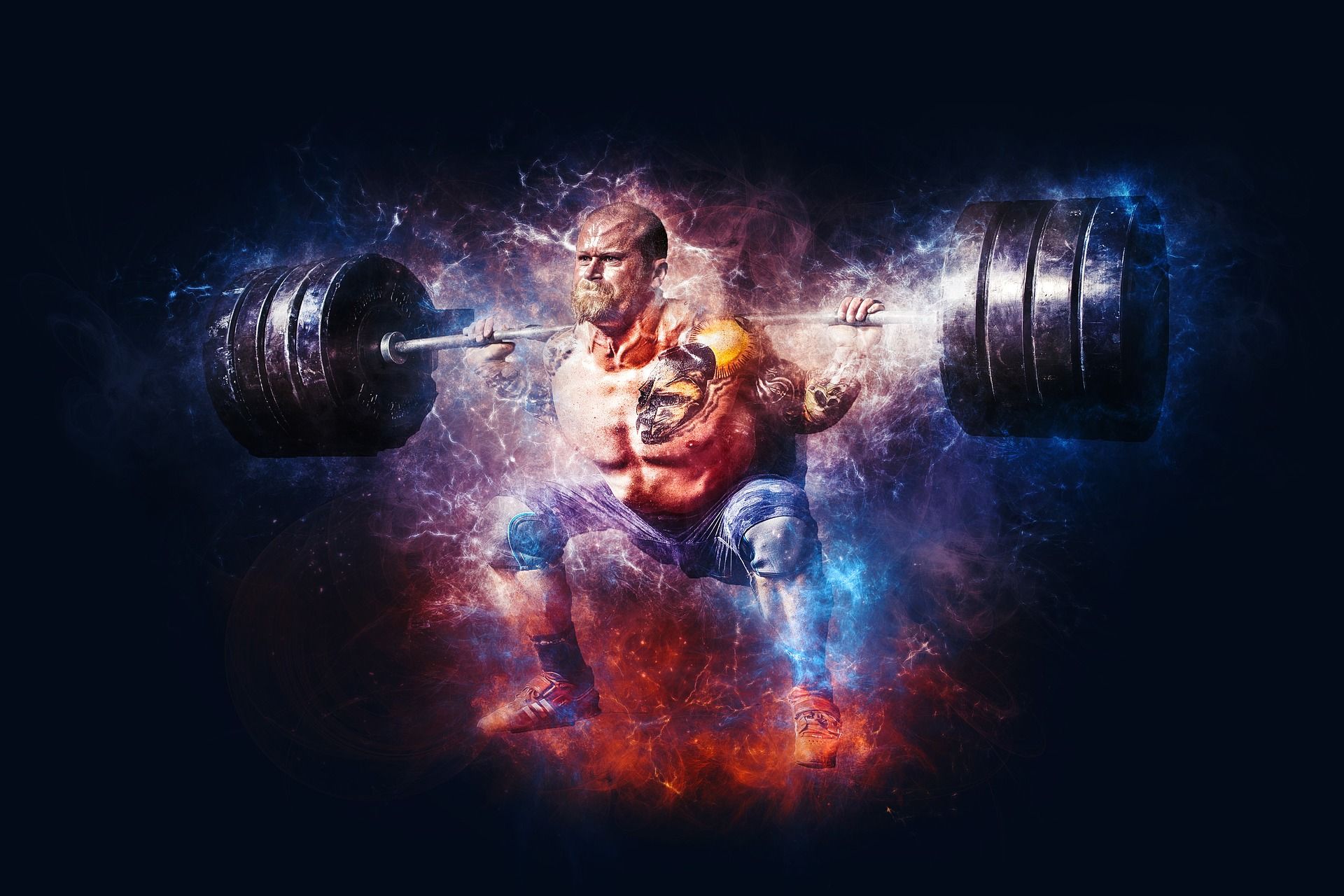
Action Steps:
So you've finished reading the book. What do you do now?
#1: Lean in to the discomfort, boredom, and apathy that you feel.
Comfortable people don't want to wake up. So if you feel - deeply and viscerally - that your current manner of living isn't allowing you to live up to your full human potential, then that's actually excellent news. You're ready to start waking up, and not merely flirting with the idea of waking up. You're ready to go!
So instead of running back to comfort, take these signals for what they are: a sign that today is the day, now is the time, and your real life is waiting.
#2: Realize that you are in prison.
The lazy, hypnotic dream-state is a kind of prison, and the first thing you have to do in order to break out is to realize that you're in prison in the first place. I seem to remember a movie about some kind of Matrix that had a similar theme. What was it called again?
Anyway, when you start to feel claustrophobic, when you start to feel the repression of your full potential that we talked about earlier, that's another signal that now is the time to check your surroundings for the presence of the invisible bars that are holding you captive. Break them.
#3: Question your current habits.
As discussed previously, habits can be incredibly helpful and constructive, or they can keep you trapped in prison. The point here isn't to have zero habits and waste precious mental energy making a multitude of decisions each day about every single action you take.
Rather, it's about becoming conscious of the current habits that are operating in your life, taking stock of whether they are hurting or helping you, and committing to maintain present-moment awareness more often during your day. At first, take just one habit - a good one - and commit to doing it intentionally, with full awareness of what you're doing. Don't sleepwalk!
#4: Set a wakefulness alarm.
This is a tricky one, but it might help. What I used to do is set an alarm to go off every half hour to remind me to get back into present-moment awareness. Now, the danger of course is that the half-hour alarm will go off, and you'll automatically turn it off and go back to whatever it is you were doing, mindlessly.
Maybe what you can do instead is to set an alarm to go off randomly throughout your day, with a reminder to "Be Here Now."
#5: Attempt something insanely difficult.
Rising to meet big challenges will force you to bring everything you've got. Sometimes, that's exactly the kind of shock to your system you need to get you back living your real life again.
There's a balance to be struck between too easy and too challenging (maybe stop short of "insanely" difficult), but whatever challenge you take on should stretch your current abilities and require you to pay more focused attention to what's being asked of you. If you get in the habit of doing difficult things, you'll be well on your way to waking up.
#6: Strive to attain the welfare of your neighbor.
This is one of the main points of "The Work" and Gurdjieff's thought, and it's just a damn good idea in general. In the novel, Middlemarch, George Eliot asked, "What are we here for if not to make life a little less difficult for one another?" An excellent question! When one person has attained full wakefulness, they become a light and an example to others. And when you begin to ask how you can make life a little less difficult for others, that's when big changes start to happen.
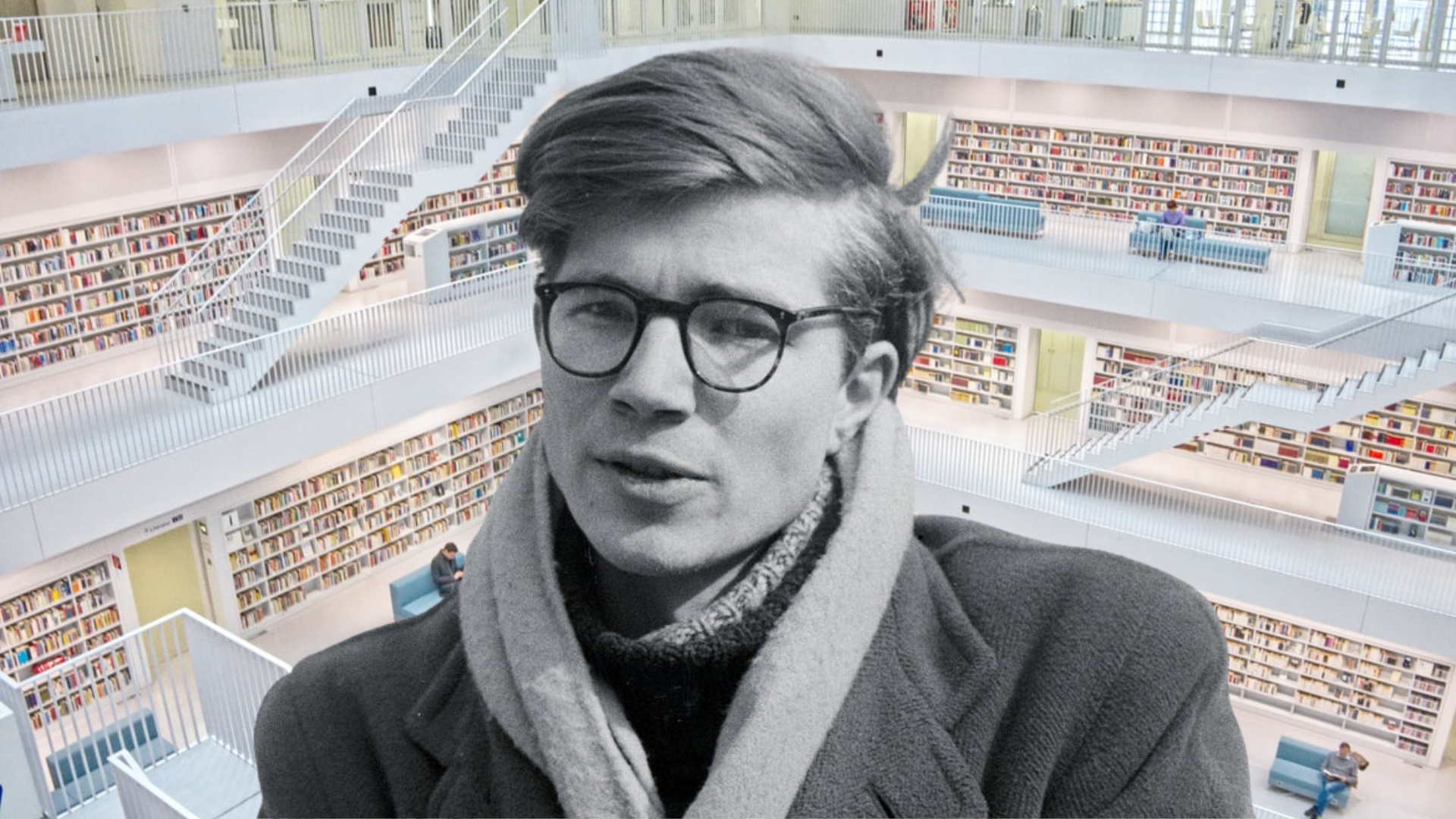
About the Author:
Colin Henry Wilson (26 June 1931 – 5 December 2013) was an English writer, philosopher, and novelist who eventually wrote more than a hundred books. Wilson called his philosophy "new existentialism" or "phenomenological existentialism," and maintained that his life's work was to create a new and optimistic existentialism. One of his first books, The Outsider, sold more than 20,000 copies in its first two months, launching him to literary stardom when he was just 24 years old.
Additional Resources:
Colin Wilson Interview with Brad Spurgeon
Introduction to the New Existentialism
This Book on Amazon:
G.I. Gurdjieff: The War Against Sleep, by Colin Wilson
If You Liked This Book:
The Doors of Perception, by Aldous Huxley
The Mind Parasites, by Colin Wilson
Super Consciousness, by Colin Wilson
Thus Spake Zarathustra, by Friedrich Nietzsche
The Brothers Karamazov, by Fyodor Dostoyevsky
The Myth of Sisyphus, by Albert Camus
Transcend, by Scott Barry Kaufman



